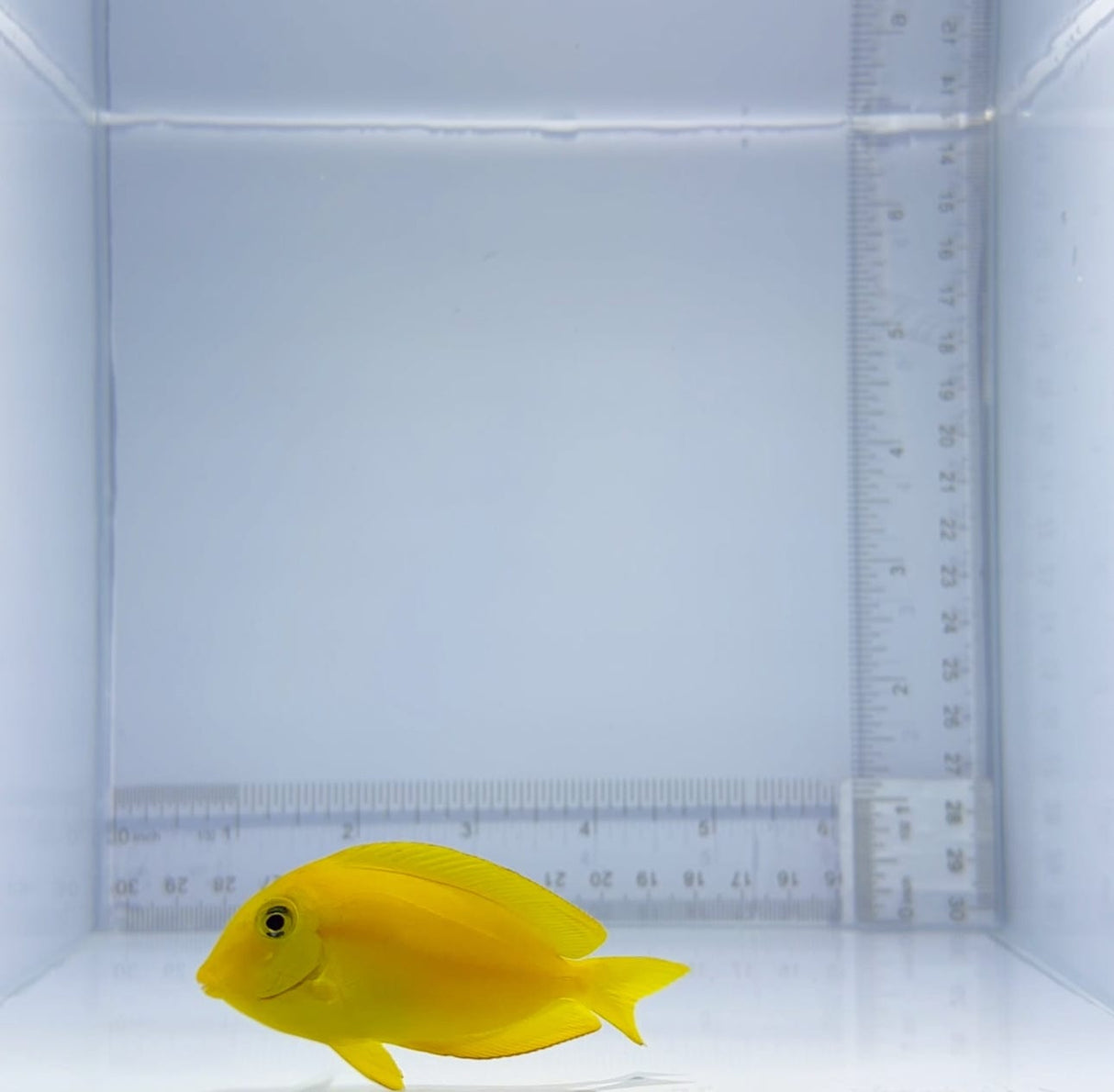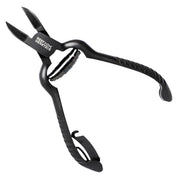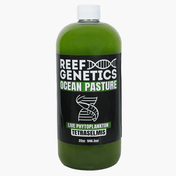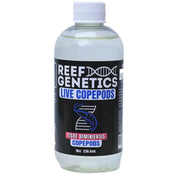AWYSIWYG – Approx. Size: 2-3.5 Inches
Juvenile Orange Shoulder Tang (Acanthurus olivaceus)
The Juvenile Orange Shoulder Tang is a vibrant, eye-catching addition to any saltwater aquarium. Sporting a brilliant yellow body with a subtle hint of the namesake orange shoulder marking, this tang gradually transforms into a stunning slate-blue adult with a bold orange stripe. Known for their graceful swimming and algae-grazing habits, these tangs bring both beauty and function to your tank.
Tank Requirements
Juvenile Orange Shoulder Tangs should be housed in aquariums of at least 75 gallons, with plans to upgrade to 125+ gallons as they mature. They thrive in open spaces for swimming along with live rock for grazing and hiding. A well-oxygenated environment with stable water parameters will support their long-term health and development.
Colorful Growth and Transformation
One of the most rewarding aspects of keeping this species is witnessing its dramatic color change. Starting out as bright yellow juveniles, they gradually develop their namesake orange shoulder and shift into a more subdued, yet striking, adult coloration. Peaceful by nature, they add elegant movement and utility to the reef ecosystem.
Diet and Feeding
These herbivores do best with a diet rich in marine-based seaweed and algae. Offer dried seaweed (nori) on a clip daily, along with spirulina-based flakes, pellets, and occasional meaty treats like mysis shrimp. A varied and nutrient-rich diet helps support coloration and immune health.
Tankmates and Behavior
Juvenile Orange Shoulder Tangs are generally peaceful, especially when young, and do well in community reef tanks. As they grow, they may become more territorial toward similar-shaped tangs, so it's best to introduce them early and avoid housing with other Acanthurus species unless the tank is very large. Fully reef-safe, they will not harm corals or invertebrates.
Introduction to Saltwater Tangs
Tangs, also known as Surgeonfish, are active, fast-swimming herbivores known for their bold coloration, streamlined bodies, and role in controlling algae growth. Found in coral reefs worldwide, tangs require large aquariums with strong water flow to accommodate their constant movement and grazing habits. While peaceful toward most tankmates, tangs can be territorial and aggressive toward other tangs, particularly those of the same genus. They are best suited for well-established reef tanks with ample swimming space and hiding spots.
Care Requirements
Care Level: Moderate – Requires large tank Minimum Tank Size: 75 – 180+ gallons Smaller species (e.g., Kole Tang) – 75+ gallons Larger species (e.g., Achilles Tang, Blue Hippo Tang) – 125-180+ gallons Aquarium Setup: Requires open swimming areas, rockwork for hiding, and high water flow Tangs are strong swimmers that thrive in environments with high oxygen levels and strong filtration. They are prone to stress-related illnesses like Ich, making stable water parameters essential.
Diet & Nutrition
Tangs are herbivores that require a diet rich in plant-based foods for optimal health and vibrant coloration. Diet: Herbivorous – Prefers marine algae, seaweed, and plant-based foods
Recommended Foods:
Nori and seaweed sheets (offered daily) Spirulina-based flakes and pellets Blanched vegetables like zucchini and spinach Occasional protein-based foods like mysis shrimp for variety A nutrient-rich diet prevents nutritional deficiencies and lateral line erosion (HLLE), a common issue in tangs.
Lifespan & Growth Rate
Lifespan: 8-20+ years Growth Rate: Moderate to Fast – Many species reach 8-12 inches Tangs require long-term care and proper nutrition to reach their full lifespan and size.
Temperament & Compatibility
Temperament: Semi-Aggressive – Generally peaceful but territorial toward other tangs Reef Safe? Yes – Does not harm corals or invertebrates Tangs do well in reef aquariums and community tanks with: Clownfish Wrasses Angelfish Large gobies They may become aggressive toward other tangs, especially those with similar body shapes or coloration. Introducing multiple tangs at once in a large tank can help reduce aggression.
Common Challenges & Considerations
Prone to Marine Ich: Tangs are susceptible to Ich and other parasites, so quarantine before introducing to display tanks. Territorial Behavior: Can be aggressive toward new tangs, requiring careful introduction. Water Conditions Temperature: 74-80°F dKH (Alkalinity): 8-12 pH: 8.1-8.4 Specific Gravity: 1.020-1.025 Tangs thrive in high-quality reef conditions with strong filtration to support their active swimming habits.
Color Varieties & Popular Species
Tangs come in a wide range of colors and patterns, making them one of the most visually striking fish families in the hobby. Yellow Tang (Zebrasoma flavescens) – Bright yellow body, one of the most popular reef fish Blue Hippo Tang (Paracanthurus hepatus) – Electric blue body with black markings, also known as the "Dory" fish Kole Tang (Ctenochaetus strigosus) – Brownish body with blue highlights, a fantastic algae grazer Achilles Tang (Acanthurus achilles) – Black body with orange crescent tail, one of the most challenging tangs to keep
At Top Shelf Aquatics, we take pride in ensuring your order arrives safely and in perfect condition. Here’s everything you need to know about our shipping process:
Livestock Shipping Details
- Flat Rate Shipping:
- $39.99 Out of State
- $34.99 Florida (In-State)
- Orders over $299 ship FREE!
- NO FREE Shipping during Sale Events
- Shipping Days: The calendar during checkout determines when your livestock order will arrive. Normally we ship Monday - Thursday via FedEx Priority Overnight.
Orders placed by 2 PM EST Monday - Thursday ship the same day. Orders placed after 2 PM or on Fridays will ship the next business day. - Delivery Times: Most packages arrive by 10:30 AM EST, though remote areas may experience later deliveries.
We take every measure to protect your livestock, including specialized packaging to maintain temperature and safety during transit.
Dead on Arrival (DOA) Policy
In the rare event of a DOA, you must submit a DOA Request within 2 hours of delivery (FedEx posted time). Once submitted, we will issue a replacement or store credit for the livestock. Please note:
- Shipping costs are not included in the credit.
- Refunds are not offered for livestock or shipping.
While we cannot be held responsible for delays caused by mechanical or weather issues, rest assured we’ll do everything possible to make it right!
Reef Guard Protection Plan
For ultimate peace of mind, upgrade to our Reef Guard Protection Plan. With Reef Guard, you’ll enjoy:
- Extended Livestock Guarantee: Coverage for up to 5 days.
- Priority Resolutions: Hassle-free claims with fast resolutions.
- Weather & Shipping Delay Coverage: Includes FedEx lost packages and damages.
Shipping Restrictions
- We currently ship livestock only within the continental U.S.
- Note: Due to Hawaii state law, we are unable to ship corals to Hawaii.
Now’s the perfect time to prepare your aquarium for its new additions. Consider doing a water change and ensuring space is ready. Check out our YouTube channel for detailed care instructions for your new corals!
For any questions or concerns, feel free to reach out to our support team. We’re here to help make your reefing journey a success!
5 Day Reef Guard
Temp-Control Box
Priority Overnight
Expert Care Support




















